What Legal Rights Do Homeowners Have?
When it comes to property, quite a bit of freedom is possessed by homeowners. As one example of a homeowner’s rights, they can – in most ways – enjoy the property as they see fit. Some limitations may apply, however. Covenants, ordinances, and laws may affect a homeowner’s rights.
Here, we will provide some information on a homeowner’s options and some of the more common private property use limitations. Naturally, for specific laws and details that are land-use related, you should check with your community. A property law attorney should be contacted regarding property use issues if you need a personalized assessment.
Ordinances Involving Zoning
An activity may not be neighborhood appropriate even if it isn’t criminal. Certain types of businesses are prohibited by zoning restrictions. In business parks, houses may not be able to be built. From city to city, zoning ordinances vary. Typically, they’re designated for industrial, business, or residential use. Before you change your office building to an apartment complex – or prior to deciding to open a convenience store from your basement – the local zoning authority should be conferred with.
Disobeying the Law
The law is the law – whether you’re a homeowner or not. It’s illegal inside of your home if it’s considered illegal outside of your home. This can apply to most categories of criminal activities including violent crime, drug crimes, etc.
Your at-home behavior is restricted by other things than criminal law, however. The use of your property may be limited by local ordinances including nuisance laws, noise laws, and more.
Easements and Covenants
Your rights as a homeowner may be restricted by certain situations created by property law. Dictating how the land can be used and what improvements can be made, some covenants are possessed by subdivisions and developments. For instance:
-
- Satellite Dishes: the affixing of these to homes is prohibited in some areas
- Lawn Maintenance: A certain level of maintenance is required on local lawns in some neighborhoods
Particularly notorious for covenants considered restrictive are gated communities. They may limit the following and more:
-
- Where your garbage cans are stored
- How you use your yard
- What you can put on your patio
- What color your house can be painted, etc.
As a homeowner, your rights can also be affected by easements. For instance:
-
- Power lines can be maintained on your property by the telephone company
- Your land/property can be crossed by your neighbor
To figure out if there is an easement on your land, it’s best to consult with a real estate attorney.
Count on Carcich O’Shea to Represent Your Rights As a Homeowner
Local and municipal laws can apply to property owners. If you run into trouble involving either of those, we can help represent your rights as a homeowner. Tell us all about your case.
If you’d like to get in touch with Carcich O’Shea, feel free to phone us at 201-988-1308 or email us at ca**********@***il.com. You can also use our convenient online form, or visit our office at 401 Hackensack Ave. Suite 707, Hackensack, New Jersey. We also have an office at 222 N. Main St. in New York City (please call ahead either way).
The post What Legal Rights Do Homeowners Have? appeared first on Carcich O’Shea.

